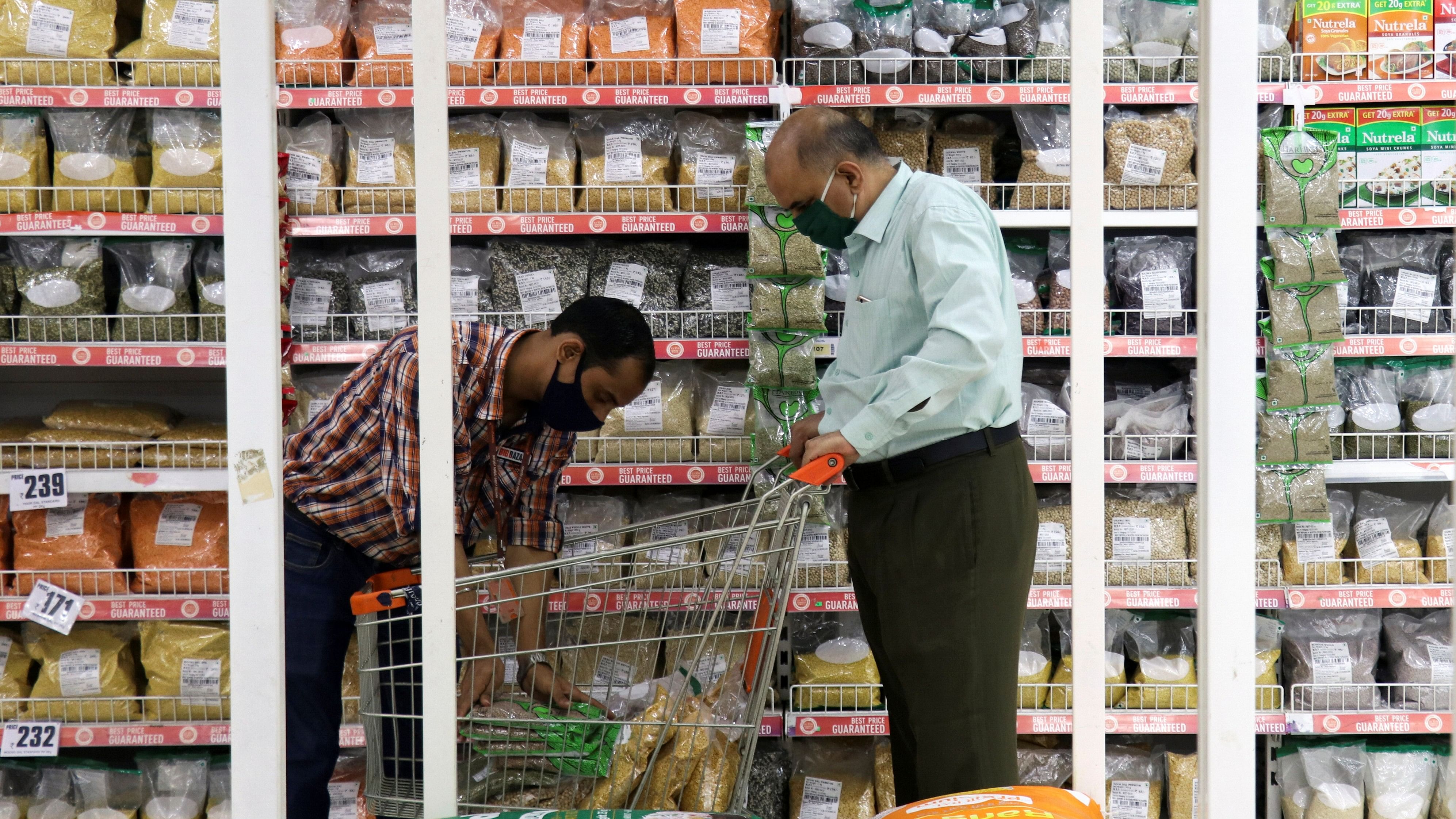
People shop at the Big Bazaar retail store in Mumbai, India, November 25, 2020.
Credit: Reuters File Photo
Bengaluru: Indian consumer goods makers are facing a slowdown in urban demand, with higher food inflation as one of the key factors, which has lead to consumers to cut down on spending. While rural areas are showing signs of recovery, it cannot make up for softening demand of over 50 crore of India’s urban population, commentary from the heads of Indian retail majors indicate.
Most of the fast moving consumer goods (FMCG) companies including Hindustan Unilever Limited (HUL), ITC and Nestle India reported weak results for the June-September quarter, citing frugal spending by urban consumers.
"There is a top-end and people with money are spending like that is going out of style. The middle class of the country seems to be shrinking," said Nestle CMD Suresh Narayanan in a post earnings call last week.
While below-average monsoons affected consumer companies last year, above normal monsoon and floods led to decline in the food and beverages (F&B) segment this year. The likes of HUL, Dabur and Nestle posted a single digit decline of 1-2 per cent in the F&B category.
Competition posed by direct to consumer (D2C) brands is also a factor contributing to the weak show by the FMCG giants, analysts told DH. However, they also believe that an even larger issue is at play, and that competition is a part and parcel of the process.
“I agree that it is a part of the problem, not the whole. By making this claim, companies can hide under this claim for one more quarter, that’s it. These quarterly results of FMCG companies represent a macro-economic change, which is the weakness in urban demand,” said Ankur Bisen, Technopak Advisors.
While volumes have largely remained stable, margins continue to remain a pressure point for FMCG firms.
“Fundamentally, targets related to margins are taking a bigger hit than volumes as they continue to hold back price increase and devote it to discounting and holding customers,” said Harish Bijoor, brand strategist.
However, certain consumer goods companies remain confident of demand picking up in the coming months. Parachute maker Marico believes that continued government spending and festive season is likely to aid growth in the near term.
Its peer Godrej Consumer Products Limited (GCPL) said that it is ‘too soon to call the slowdown in urban consumption a trend’, in its quarterly earnings commentary.
Cooking oil has remained the star of the consumer goods story as demand in that category has shown growth. Marico and its rival Adani Wilmar posted largely solid results. Patanjali’s edible oils segment, which makes up nearly three-fourths of its total revenue, rose about 10% during the July-September quarter.
Subdued wage growth impacting consumption
The Union Finance Ministry’s latest Monthly Economic Review, released last week, said that going forward while the ongoing festive season and improvement in consumer sentiments may boost urban consumer demand, early indications have not been particularly promising.
The post pandemic revenge spending has cooled down, coupled with muted wage growth, poor job prospects, reflecting in auto and FMCG sales. “The demand shrinkage is real as wages are not going up. If wages are not rising, you can't absorb price rises,” added Bisen.
Analysts also highlighted that FMCG companies’ stocks are correcting as a disappointing set of numbers have weighed down on investor sentiments, “The sudden realisation of the dismal performance which was otherwise expected to be positive has added to the fall in the stock prices and it is expected to remain under pressure,” added Bijoor.
It may be recalled that the Nifty FMCG index has fallen more than 9.6% in October, its worst monthly decline in the past six years.
Commenting on future projections, HUL’s chief executive officer Rohit Jawa said that the company is expecting a low single digit price growth, if commodity prices remain where they are. On the other hand, its peer GCPL said that it is watchful of the palm oil price volatility playing out over the next few quarters.